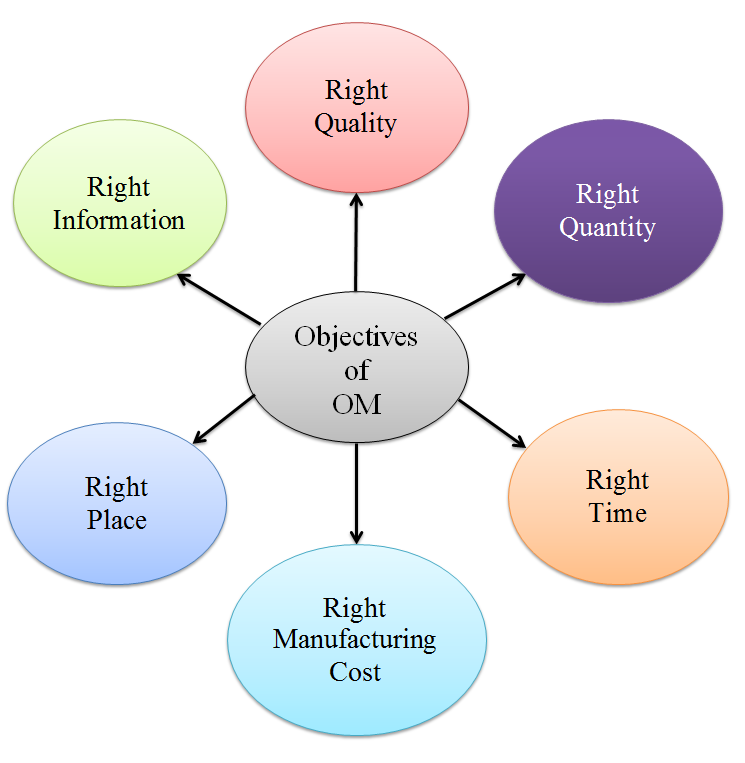Operations Management
Most of the management concepts are evolved with the evolution of operations management. Operations management plays a vital role in today’s era of world class manufacturing. Operations management is a process where inputs are converted into useful products. It is the planning, scheduling and controlling of the activities that transform inputs by way of raw materials, capital, machinery, labour, information and time into outputs in the form of products and services of higher value than the inputs. Operations management involves managing people, technology, information and many other resources. It is the central core function of every company. Every organization, whether in product or service has the objective to earn profit and profitability depends on smoothness of production process.
Definitions
According to Barnett
Operations Management is concerned with the efficient conversion of an organization’s resources into the goods and services that it has been set up to provide.
According to Naylor
Operations Management is concerned with creating, operating and controlling a transformation system which takes inputs of a variety of resources and produces outputs of goods and services which are needed by the customer.
According to Stevenson
Operations Management is the management of systems or processes that create goods and/or provide services
According to Waters
Operations Management is concerned with all the activities involves in making a product or providing a service: it is responsible for the transformations of various kinds of inputs to useful outputs.
According to B. Mahadevan
Operations Management is a systematic approach to address all the issues pertaining to the transformation process that converts some inputs into output that are useful, and could fetch revenue to the organization.
Objectives
The objectives of Operations Management can be represented in the form of a diagram shown below:
- Right Quality
Quality is a degree to which it conforms the design specification and satisfies the consumer in general. Right quality must lead to effectiveness of production process.
- Right Quantity
The manufacturing organization should produce the products in right number. If they are produced in excess of demand, the capital will block up in the form of inventory, and if produced in short of demand, it leads to the shortage of products. Quantity produced always shows a measure of efficiency of production process.
- Right Time
Right time delivery in one of the important parameter to judge the effectiveness of production department. Product and services should reach the consumer in time. If timeliness are not followed, then the product may be considered as waste, hence right time production leads to accuracy.
- Right Manufacturing
In the era of competition, manufacturing costs play a very important role in the success of the organisation. An organisation cannot increase the sales price outright, nor can it reduce its profit margin. The only way to survive is either to reduce manufacturing cost or maintain it at the same level. Hence, right manufacturing costs lead to profitability.
- Right Place
Delivery locations and manufacturing locations are very important. Manufacturing and delivering the goods at right place is very imporatn. It can be taken as a key factor for success. Delivering the goods at right place ensures the perfectness of the production process.
- Right Information
In the era of information technology, collecting and providing right information is the key to success for any business. Passing the information from right source to right receiver completes the fitness of information cycle.

